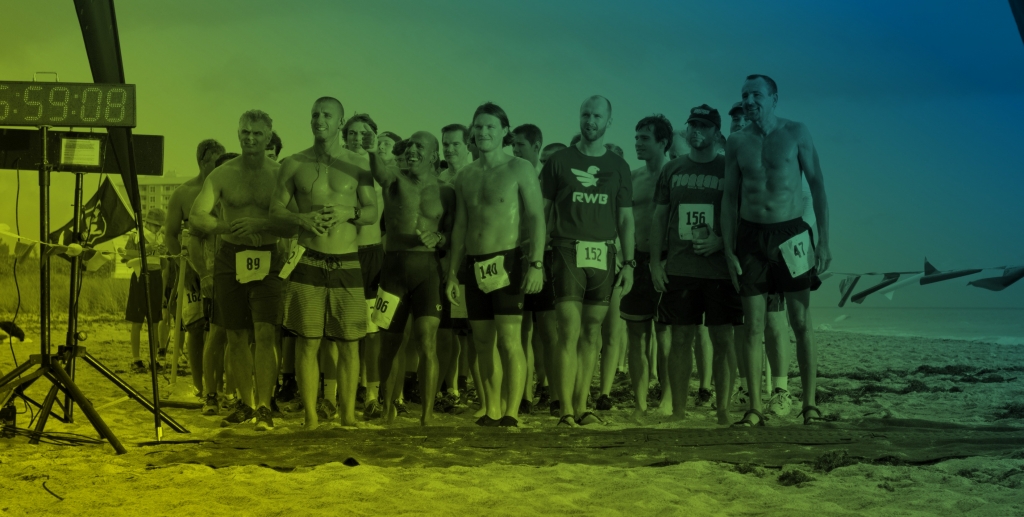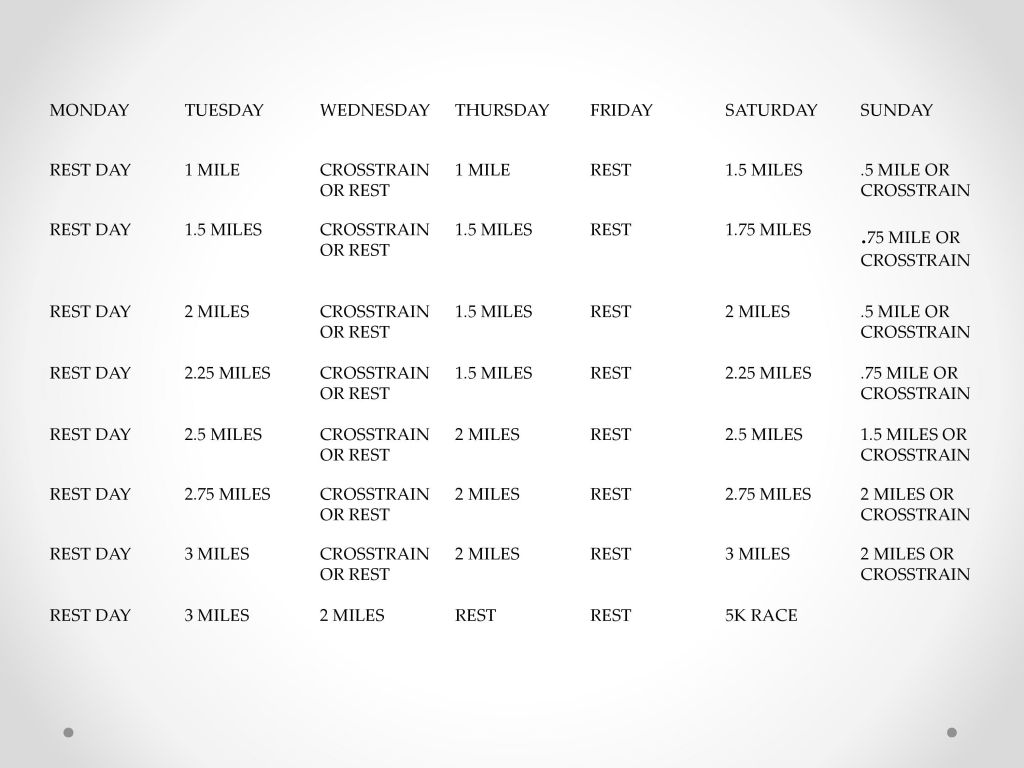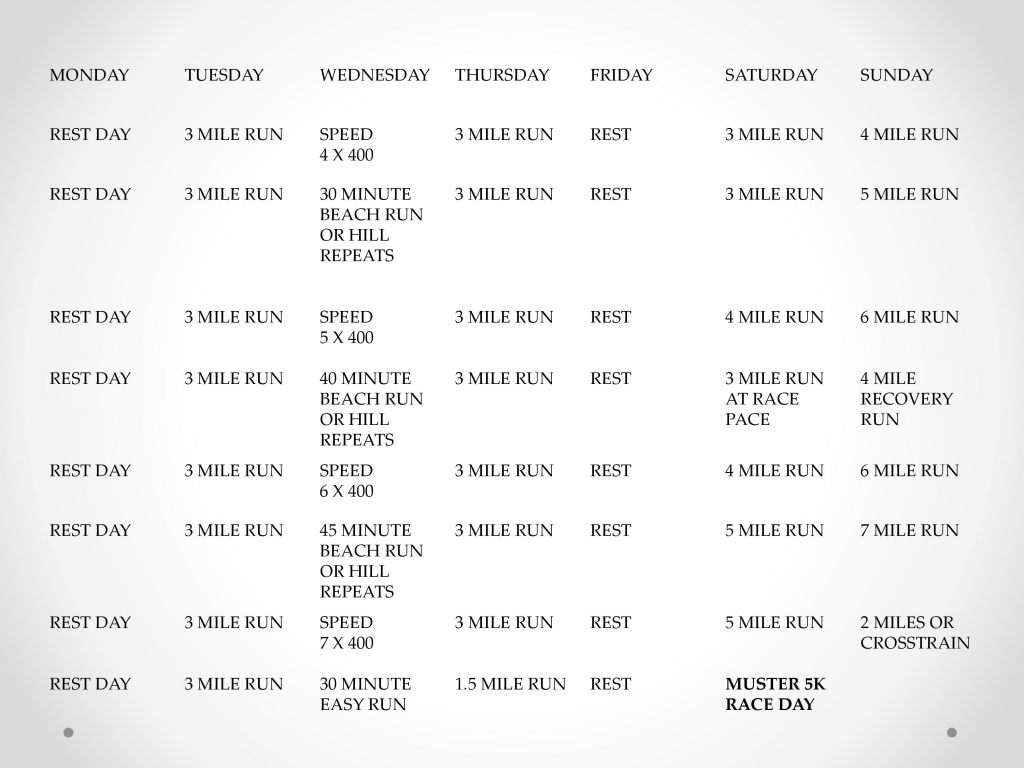SEAL Approved: Muster 5K Training Plan

The 5K is a unique distance. It is short enough to be palatable for those who may not consider themselves elite athletes, yet long enough to be competitively strategic for runners who choose to race.
We spoke with retired Navy SEAL and fitness expert Rich Graham. Here, he has created an eight-week program to help the beginner complete the distance with confidence– or to support the seasoned runner finish with favorable time results.
A portion of this training plan calls for longer, slower runs to allow participants to experience the distance before the actual race. Time for these runs/walks is irrelevant, but it teaches the body to tolerate the distance ahead of time and trains the brain before race day that it is attainable.
Graham also incorporates speed intervals into any running regimen. Speed begets speed, so for those wanting to challenge the clock, interval training will accomplish just that.
Here’s the Beginner Training Plan:

“I would recommend anyone keep time for training reference to see progress when working toward future goals.”
A training log can help keep track of distances covered and in the time completed. Whether done digitally in a computer program or just by journaling the details daily, keeping track of workouts is a wonderful way to look back and see what was beneficial and areas in which you have improved.
Graham goes on to recommend resistance training–in the way or sand, trails, or hill repeats. Running hills increases strength, while sand and trail promote a different kind of power. Running or walking off road provides a more forgiving surface, but also one the athlete must negotiate in a way entirely different than navigating pavement. This calls for using different ancillary muscle groups for stability.
“Sand and trails are easier on your joints, but more fatiguing on the tendons and ligaments. Training in these conditions is important because it builds up ankle joint and knee strength,” says Graham.
Here’s the Intermediate Training Plan

Getting off the road is also good for mental training. It takes a different kind of coordination to cover sand or trails because the terrain is constantly changing and the athlete is forced to adapt his or her gait accordingly. This provides a unique challenge entirely. Particularly when training for an event that will take place on the sand, it is important to practice a few workouts in the same conditions.
“Lastly, any athlete should have a good stretching routine to help prevent knee and lower back pain.”
About Rich Graham
Former Navy SEAL Richard Graham is the founder of Trident Fitness, LLC. After entering the Navy in 2000, Rich served over six years fighting for this great country before obtaining a medical condition that forced him to leave the Navy. While in the Navy, Rich came to realize that the military community was strongly focused on optimum fitness and leadership across a wide spectrum, which planted the seed for what would later become Trident Fitness.
Rich took the knowledge gained as an athlete and special ops operator and geared it toward personal development and fitness. This is when Trident Fitness and Navy SEAL Kettlebells was born. Since 2007, he has trained professional athletes, Olympic trials competitors, MMA fighters, and children of all sports and fitness levels. His charismatic, simple, and practical approach to training techniques makes his program easy to grasp and fun to learn, regardless of fitness level or training goals.
In addition to personal fitness, Rich has also supplied training to the Mid-Atlantic Tactical Officers Association (M.A.T.O.A.) as their military tactics advisor. He has run courses on tactical pistol training, along with instructing advanced sniper courses for SWAT Teams. Through these programs, he has successfully trained various SWAT Teams, Troopers, US Marshalls, and other branches of law enforcement, along with civilians.
Following his time in the Navy, Rich organized a cross-country bike ride across the USA in an effort to help raise money and awareness for the Special Operations Warrior Foundation (S.O.W.F.), in which they raised over $70 thousand dollars. Trident Fitness continues this work by donating a portion of all product sales to charities like the S.O.W.F.
To learn more about Trident Fitness, please visit: www.tridentfitness.net.

